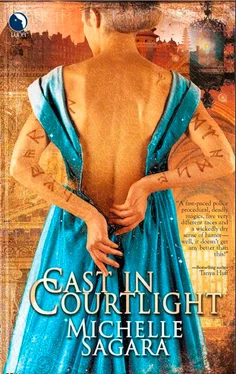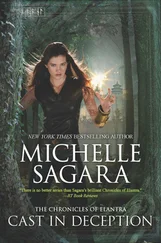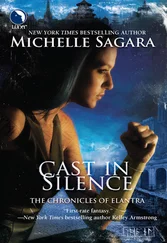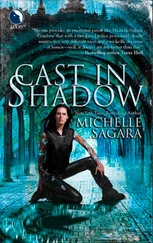He raised a perfect, dark brow. It was perfect because he was Barrani. In fact, his eyes, which were a deep, startling green, were also perfect, and framed by—yes—perfect lashes. His face was the long, fine face of Barrani everywhere, his hair, the long perfect raven-wing black. He moved like a dancer. Or a hunting feral.
But he wore clothing—a long, dark cape over a robe that was both fine and edged with gold. Nothing about Barrani dress was ever less than ostentatious, even when it happened to be the same uniform—sized up—that she herself was now wearing.
She hated that. Anyone sane did.
Well, all right, anyone sane who wasn’t also immortal and perfect and didn’t take unearthly beauty for granted. “Why are you here?”
“Because you are,” he replied. “You’ve been calling me for the last week.”
She frowned. “I haven’t.”
His shrug was elegant; it made hers look grubby. And unlike Teela or Tain, he didn’t even make an effort; he spoke Barrani, and at that, the High Caste Barrani she most despised. Teela spoke Elantran when she was with the Hawks. Even when they were Barrani. When Teela broke into Barrani of any flavor, it meant trouble. “As you like,” he said quietly.
He drew closer, but stopped about two feet away. He did not, however, lean against the railing.
“You’re almost on my turf,” she said quietly.
“Almost is a mortal word.” He gazed at the river, and gestured; it seemed to freeze in its bed, like sleek glass. She could see herself clearly in the momentary reflection; she could see him more clearly, and in the end, it was the fieflord she looked at. Who wouldn’t?
“You have not come to visit,” he said quietly.
She started to reply, and caught the words before they left her mouth, for perhaps the first time today. The fieflord was not known for his sense of humor. Or perhaps he was: He regularly killed people who offended by implying it existed at all.
Bravery was costly in the fiefs. Defiance was more painful, but not ultimately more costly.
“No,” she said when she could talk. “I haven’t.”
Before she could move, he reached out to touch her cheek, his fingers caressing the skin that bore his mark. He did not touch any other part of her face, but he didn’t have to—his meaning, in the gesture, was plain.
“You could remove it,” she told him softly.
“Yes, I could. But not without cost.” His smile was unsettling. “You speak my name when you sleep,” he said softly. “My true name. And there is no way to avoid hearing it—not for me.”
“I can’t speak it,” she said, something like fear informing the words.
“I know. I believe you did try when Tiamaris asked.” “I tried. Once.” “What did he hear?” “Nothing.”
“But I heard it,” he said softly. “You were in Castle Nightshade.”
His brow rose. “Yes,” he said, and it seemed there was caution in the affirmation. “I was.”
“Why did you—why are you here?”
His eyes shifted in color. It was sudden, but it was entirely unexpected; nothing Barrani did could be expected, almost by definition. You just couldn’t trust them, and predictability implied a certain belief in routine. “The castelord has called the High Court,” he said quietly. The wrong type of quiet.
“I … know.”
“Anteela will be there.”
“An—oh. Teela.” She remembered that Lord Evarrim had called Teela that, what seemed like another lifetime ago. “She’s gone. But none of the other Barrani are.”
“They wouldn’t be. None of the other Barrani, as you so casually put it, withdrew from the Lord’s Court to pursue the idle life of a … Hawk.”
“She’s a—”
“In Elantran, you would call her Lady Anteela,” he said, using the word Lady with some distaste. “If she desired it. She does not.”
“So she left.”
His smile was cold. “The Hawks are trained to observe, are they not?” “They are.”
“Then the training given is poor indeed.” “We like to observe fact.”
“Fact, as you so quaintly put it, is something that is rarely understood if it is observed with no understanding of context. She withdrew from Court. Her absence was noted. It was not, however, appreciated.”
She didn’t ask him how he knew.
“Wise,” he told her. “Understand, Kaylin Neya, that you will be at the heart of many discussions when the Court convenes.”
“And that will be?”
“When the moon is full,” he replied. “And silver.”
“Which moon?”
“There is only one that counts.”
She didn’t ask. As far as she was concerned, there were two. “Why are you here?” she said again.
“I am unwilling to risk you in the games that will no doubt unfold. You are too ignorant of our customs.”
“You’re outcaste,” she said without thinking. “They’re not your customs anymore.” She caught up with her flapping mouth and shut it hard enough to hear—and feel—her teeth snap.
His eyes were now a blue that was sapphire. Midnight sapphire. “Come,” he said, and he began to walk away, down the gentle slope of the bridge.
On the wrong side.
“You can’t—you can’t go there!”
“While it is true that I seldom venture outside of my domain, I am seldom stopped when I do so.”
He continued to walk, and after a moment, she pushed herself back from the comfort of bridge rails and leaped after him. His stride was a good deal longer than hers, and she had to work just that little bit harder to keep up; it was hard to look cool and composed when one was breathing too hard.
She followed him, looking back and to her side in growing unease. No one seemed to notice that the damn fieflord of Nightshade was walking the streets of Elantra. Then again, she wouldn’t have believed it either; she would have seen just another Barrani, in the company of a junior Hawk.
But as she followed him, the streets grew familiar. Not even the gaudy ribbons and wreaths, the symbols of a dozen different gods, the statues—layers of new paint over layers of old paint, like some miniature ode to geological formations—could make these streets so new or strange that she wouldn’t recognize them; if she closed her eyes and slowed down, her feet would know the path.
He was walking her home.
She stopped walking, in the vague hope that he would. Instead, the distance between them grew until she’d have to really sprint to close it. She did.
She couldn’t bring herself to touch him; had he been Severn, she’d have had two handfuls of elbow as she swung him around. Instead, she tried hard to avoid looking at any of the details of her daily life that made her life bearable. As if, by ignoring them, she could protect them. She walked.
He stopped in front of her building, at the locked door. She fumbled for her keys, but because it was deliberate, a way of buying time, he taught her a small lesson; he passed his hand over the lock, and she felt her cheek flush. Just the one.
The door opened, gliding with a creak on its hinges.
He didn’t speak a word; he simply met her gaze and waited. This much, that gaze seemed to say, he was willing to grant her for the sake of her dignity. But it was his to grant, and his to deny.
“I should arrest you,” she muttered as she hurried in the door. It closed behind them.
His smile never reached his eyes. “I think that not even your Sergeant would demand that you carry out that duty. You are, of course, free to try.”
She walked past him and up the narrow flight of stairs, stopping at the bend. He followed, and again, he followed in such a way that the stairs didn’t acknowledge his weight.
Читать дальше












